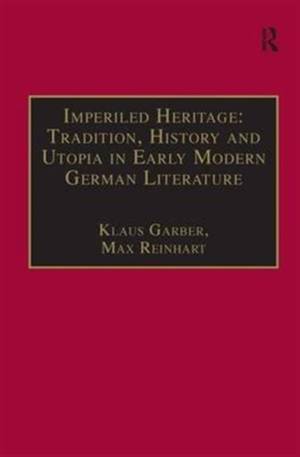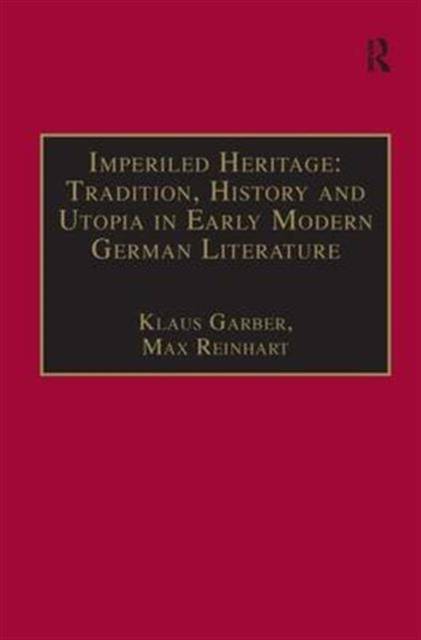
- Afhalen na 1 uur in een winkel met voorraad
- Gratis thuislevering in België vanaf € 30
- Ruim aanbod met 7 miljoen producten
- Afhalen na 1 uur in een winkel met voorraad
- Gratis thuislevering in België vanaf € 30
- Ruim aanbod met 7 miljoen producten
Zoeken
Imperiled Heritage: Tradition, History and Utopia in Early Modern German Literature
Selected Essays by Klaus Garber
€ 121,95
+ 243 punten
Omschrijving
The most prolific historian of early modern German literature in the twentieth century, Klaus Garber has largely remained unknown to English-language scholars. The seven essays selected here are translated into English for the first time and represent the 'essence' of Garber's work. Central to Garber's outlook is a break with the traditional canonization of culture into national categories. Moreover, he argues that literary history consists not only of intellectual history, but also political and social history. As he states in his preface to this volume: 'To bring Old Europe to life in all the variety of its cultural landscapes; to hear across space and time the voices that praised this multiplicity as a valuable possession; to be inspired by the past to respond to our own needs - these tasks constitute the noblest goal of early modern literary studies today.'
Specificaties
Betrokkenen
- Uitgeverij:
Inhoud
- Aantal bladzijden:
- 304
- Taal:
- Engels
- Reeks:
- Reeksnummer:
- nr. 5
Eigenschappen
- Productcode (EAN):
- 9780754600596
- Verschijningsdatum:
- 20/12/2000
- Uitvoering:
- Hardcover
- Formaat:
- Genaaid
- Afmetingen:
- 156 mm x 233 mm
- Gewicht:
- 452 g

Alleen bij Standaard Boekhandel
+ 243 punten op je klantenkaart van Standaard Boekhandel
Beoordelingen
We publiceren alleen reviews die voldoen aan de voorwaarden voor reviews. Bekijk onze voorwaarden voor reviews.










